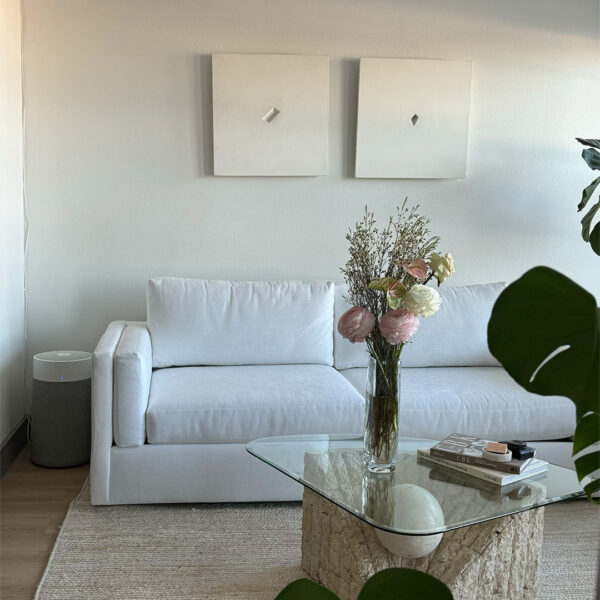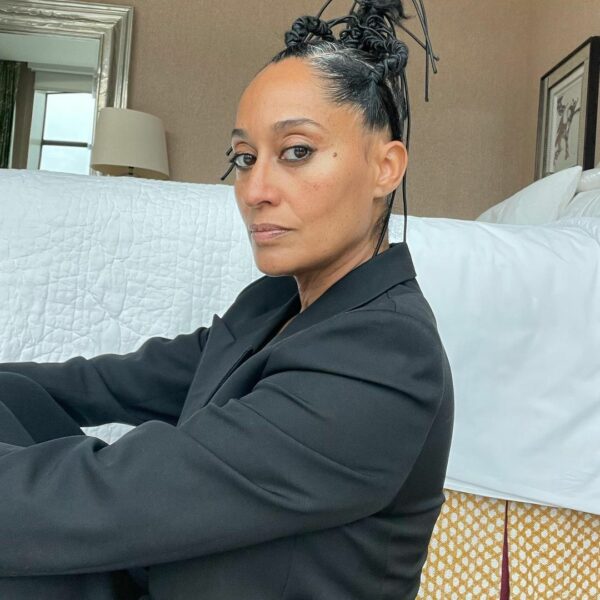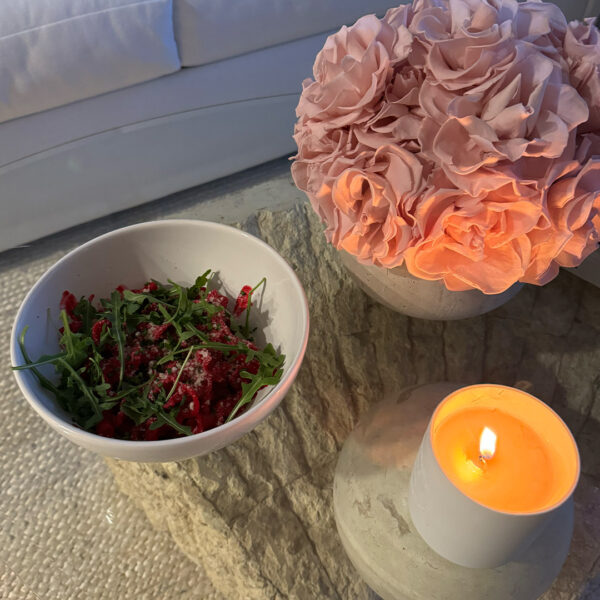Hello again, dear friend Anonymous. Welcome back to our sex talk column where readers submit questions, and we do our research and then craft a story to answer as many as we can. We tapped Dr. Kate Balestrieri—licensed psychologist, certified sex and PACT couples therapist, and founder of Modern Intimacy in Los Angeles, California—to provide her (s)expert knowledge on steamy topics (like how to teach yourself to squirt, everything you need to know about edging, if nipple orgasms are real, ways to increase your libido, and more). Today she’s taking the mic in our Ask Us Anything: The Sex Edition, to answer the latest submission. The topic? Sexual performance anxiety.
And on that note, we’ll let Dr. Kate take it from here.
I Think I Have Performance Anxiety. How Can I Move Past It?
“Performance anxiety is something people of all genders experience, and it can feel so frustrating. Even though you may want to be sexual, stress, fears, or anxieties can actually cause your body to release epinephrine and norepinephrine, which are stress hormones that can thwart physical arousal by limiting blood flow to the genitals. This can interrupt an erection or vaginal lubrication, and when that happens, it can lead to more anxiety, creating a vicious cycle!
However, the cycle can be interrupted, and you can cultivate hot, anxiety-free sex. While none of these is a guaranteed quick fix, with continued practice and implementation, performance anxiety can be a thing of the past. Here’s how you can get started:
1. Challenge the idea that sex is a performance. This is one of the most insidious thought traps underlying anxiety when it comes to sexual intimacy. Reframe sex as a solo or co-created opportunity for pleasure and exploration. Preoccupation with the need to have (or give) an orgasm, or to emulate what you have seen (or how you imagine) sex should be, can take you out of your body and away from the pleasurable sensations that reinforce arousal.
2. Practice nonsexual self-care. Make sure you are getting plenty of sleep, eat in a manner healthy for your body, exercise for health and to reinforce a positive relationship with your body (no matter your size and shape), and reduce the environmental stressors that you have control over. Doing so helps reduce your likelihood of anxiety that is unmanageable. Stay keyed into your relationship with yourself too. Loving yourself actively is a beautiful antidote to feeling inadequate.
3. Practice mindfulness or meditation. Learning to stay embodied and grounded is extremely helpful in regulating distressing emotions like anxiety. Remaining in the present and observing the cues of your body can help you stay connected to arousal or pleasurable sensations in your body and keep you out of your anxious mind.
4. Practice edging. If your performance anxiety plays out in the form of early ejaculation, engaging in edging can help you begin to more readily spot the arc of arousal in your body, recognizing cues to orgasm earlier, so you can stop and start again, emphasizing more control and reducing anxiety.
5. Talk with your partner. Let your partner know what you are experiencing and express your fears. Many people who struggle with performance anxiety experience additional anxiety at the thought of disappointing a partner. Talk with them ahead of time, get creative with outercourse, build a plan for multiple ways to be sexual, and consider alternatives to penetrative sex, if it’s not an option. Take things slow with new partners until you feel comfortable with them and are more assured they will support you instead of judge you.
6. Work with a professional. Consulting with a physician that specializes in sexual health, or a sex therapist, can help you take your interventions a step further. Both can help with practical solutions for anxiety, as well as other strategies to boost self-esteem and address issues such as vaginal dryness, pain during sex, erectile dysfunction, or shame. Medication can also help with erectile dysfunction, biologically and psychologically. A physician can help you determine if it’s right for you.
Above all else, remember that sex is an activity and has nothing to do with your worth as a human. Learning to disentangle sexual activity from identity can liberate your ego and send your anxieties packing. Sex is something we do, not who we are.”
Shop our sex and love collection:
Dr. Kate Balestrieri is a licensed psychologist, certified sex therapist, certified sex addiction therapist, PACT therapist, and founder of Modern Intimacy, a group practice in Los Angeles, Miami, and Chicago. Listen to her podcast, Modern Intimacy, and follow her on IG @drkatebalestrieri.
The content provided in this article is provided for information purposes only and is not a substitute for professional advice and consultation, including professional medical advice and consultation; it is provided with the understanding that Poosh, LLC (“Poosh”) is not engaged in the provision or rendering of medical advice or services. The opinions and content included in the article are the views of the interviewee only, and Poosh does not endorse or recommend any such content or information, or any product or service mentioned in the article. You understand and agree that Poosh shall not be liable for any claim, loss, or damage arising out of the use of, or reliance upon any content or information in the article.
Up next, be the first to know our weekly content and sign up for our Poosh newsletter.






































